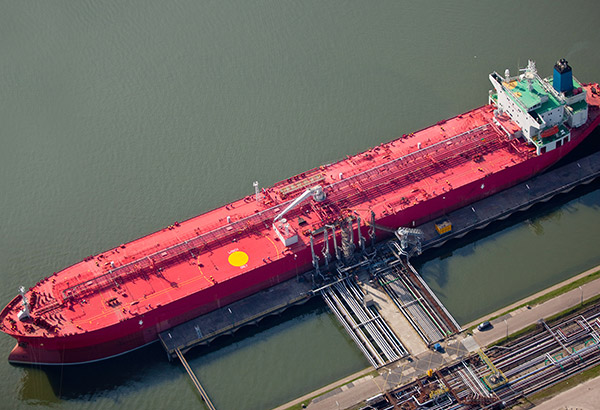
An Intensive 5-day Training Course
Crude Oil Tanker Cargo Operations
Best Practices
Maintaining Safe Cargo Care & Transfer Operations
Scheduled Dates
Classroom
| 27-31 Jul 2026 | Dubai - UAE | $5,950 | RESERVE A SEAT |
| 07-11 Dec 2026 | Dubai - UAE | $5,950 | RESERVE A SEAT |
Would an alternative date be more suitable?
We offer a variety of tailored training options, customized to meet your organisation's needs. Delivered anytime, anywhere, we make it easy to bring expert training directly to your team.
Why Choose this Training Course?
Whilst energy companies assess the financial plausibility of alternative and renewable power supplies, traditional energy sources will still be required for the foreseeable future. Do not be distracted by social and political fashions but be certain that your knowledge of well-established and sustainable energy sources is current and complete.
The political machinations of traditional oil producing countries, has failed to prevent a recent revival in crude oil prices, resulting the confidence returning to the crude oil industry. As storage facilities release crude oil back onto the market there will be a surge of tanker business and freight rates will inevitably rise as a consequence. Do not be left behind as the oil industry returns to prosperity.
This PetroKnowledge training course delivers a comprehensive coverage of the voyage cycle of a crude oil tanker. It focuses on the preparation of the cargo system and all subsequent routine cargo and cargo system operations within a cargo cycle. Topics covered will protect the safety and commercial interests of the ship owner, as well as the protection of the environment.
This training course will highlight:
- The development of the crude oil industry and current state
- The safe operation of crude oil tankers
- The protection of commercial interests in tanker operations
- Safety management with respect to fire and toxicity hazards
- Incident analysis practices
What are the Goals?
By the end of this training course, participants will learn to:
- Identify the properties and hazards of a range of crude oils
- Assess the development of the industry, its threats and opportunities
- Determine safe and efficient management of crude oil tankers
- Identify techniques to protect the commercial interests of a tanker owner
- Apply incident analysis techniques to casualty reports
Who is this Training Course for?
This Crude Oil Tanker Cargo Operations Best Practices training course will be suitable for a wide range of professionals but in particular:
- Energy Company, Oil and Gas Process Managers and Operators
- Energy Company, Oil and Gas Plant Managers and Operators
- Sales and Marketing Managers
- Financial Directors
- Project Managers
- Investment Analysts
- Asset Managers
- Asset Engineers
- Ship and Voyage Managers
- Ship Superintendents
- Cargo Surveyors and Expediters
- Ships’ Staff
How will this Training Course be Presented?
Participants on this PetroKnowledge training course will receive a thorough grounding in the subjects listed in the seminar outline utilising a variety of presentational techniques in order to facilitate learning in the most expedient manner. Lectures will be punctuated with filmed footage, practical, theoretical and group exercises and classroom discussion. Case studies chosen specifically to demonstrate the application of theoretical principles will be provided. Question and answer sessions will conclude each formal lecture.
Daily Agenda
Day One: Development, Design and Hazards of a Crude Oil Tanker
- Development of crude oil industry
- Properties and hazards of crude oil
- Flammability and volatility
- Design for safety of a crude oil tanker
- Hazards of fuel oil
- Sources of ignition
Day Two: Best Practice to Protect Owners’ Commercial Interests
- Static electricity (de-bottoming) current electricity
- Cargo calculations
- Ship / shore liaison
- Commercial interests
- Gas evolution and venting
- Marine vapour emission control
Day Three: Atmosphere Control and Environmental Protection
- Inert gas systems
- Cargo pumps and piping systems
- Inert gas operations and emergency procedures
- Crude oil washing
- Pollution controls and prevention
Day Four: Safe Working Practices and Permits
- Dangerous space entry procedures
- Medical aspects of tanker safety
- Gas detecting instrumentation
- Cold and hot work permits
- Double hull tankers and combination carriers
Day Five: Safety Management and Incident Analysis
- The cargo cycle, dry dock to dry dock
- Risk and safety management; case studies
- Fire - fighting on crude oil tankers
- Case studies; fire and explosion
- Incident analysis, recommendations and guidance
Certificate
- On successful completion of this Training Course / Online Training Course, a PetroKnowledge Certificate / E-Certificate will be awarded to the delegates.
